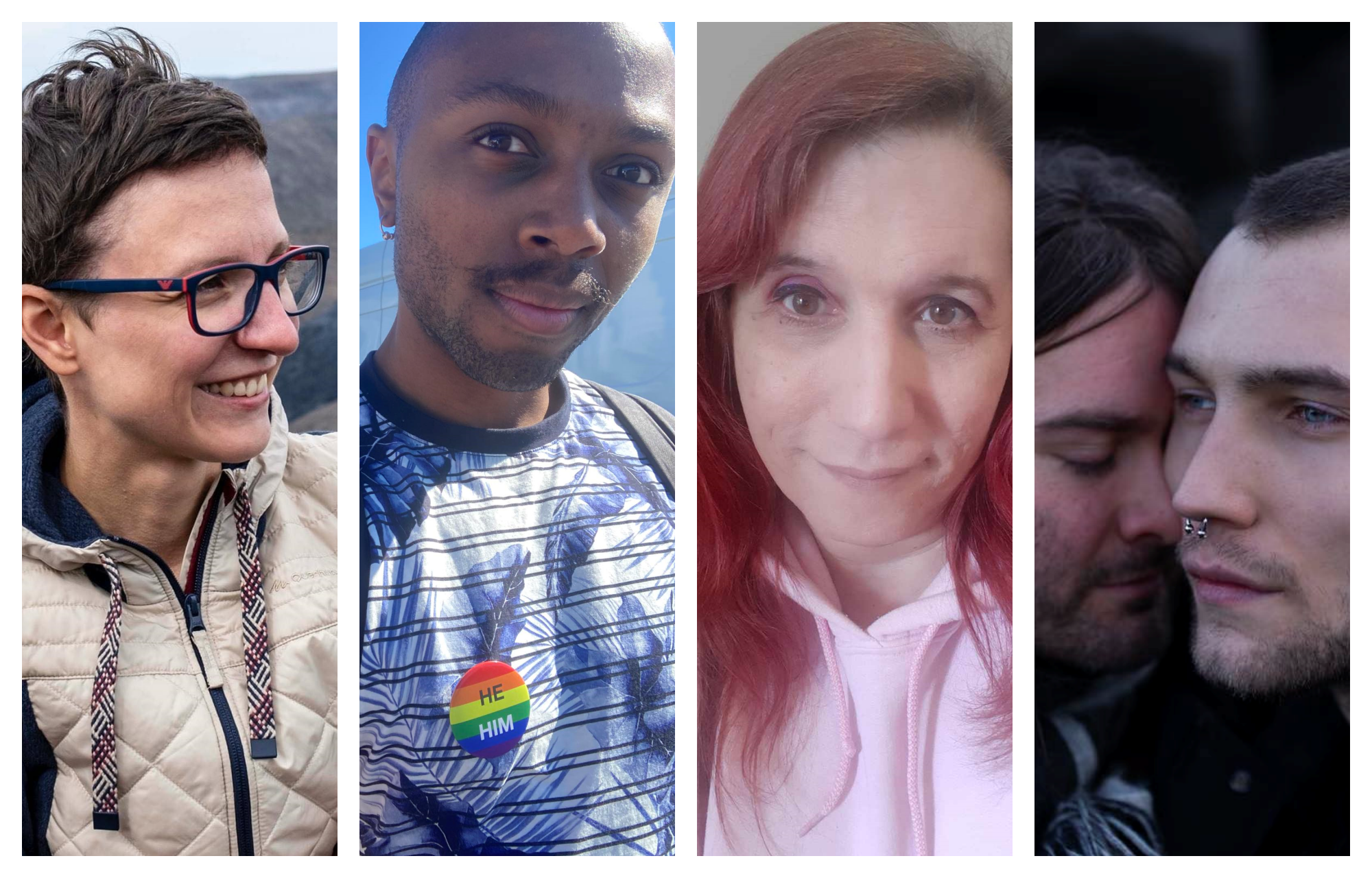Members of the queer community share their stories.
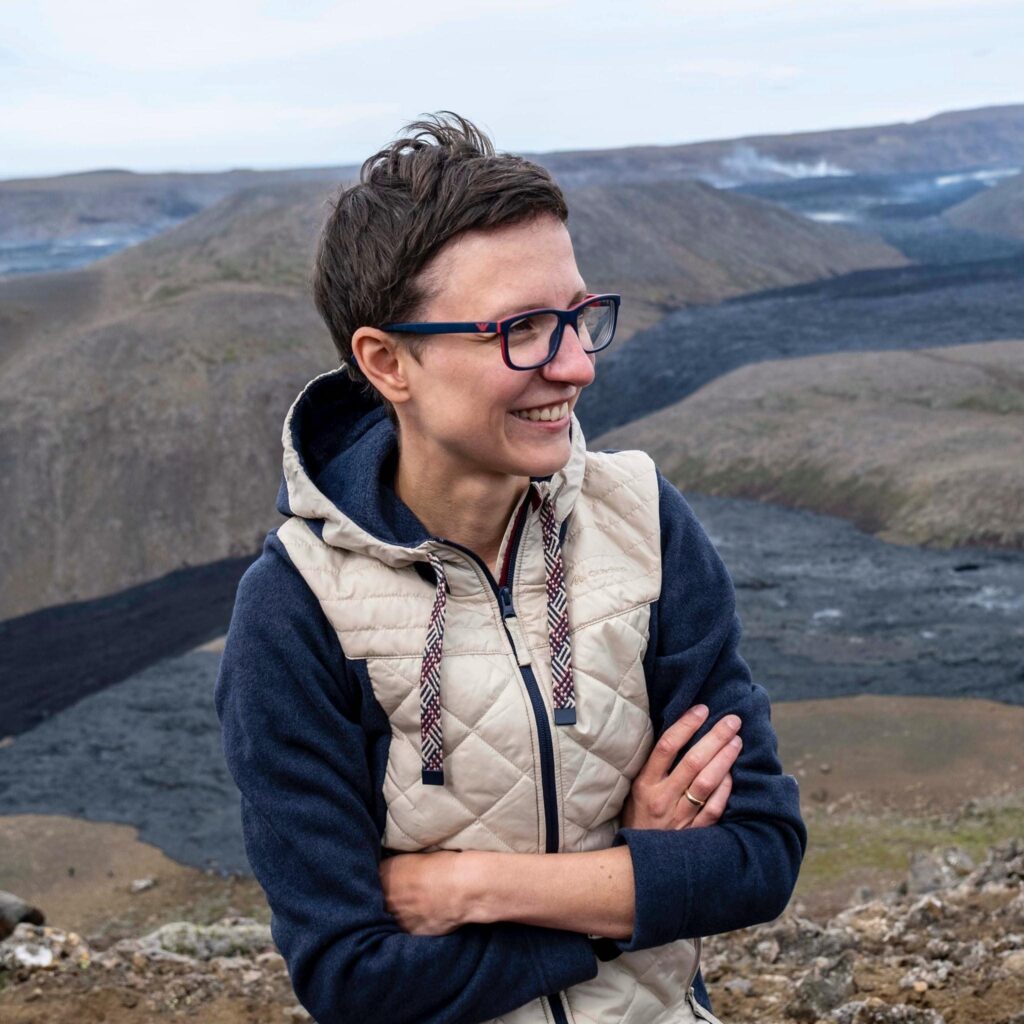
From Fear to Freedom
Leaving Poland and embracing Iceland was a turning point in my life. The difference between these two countries was striking – from facing homophobia to finding openmindedness.
In Poland, being queer came with countless challenges. Same-sex marriage and partnerships are still illegal, inclusive schools face government scrutiny. The President of Poland, Andrzej Duda, called us “not people, just an ideology”, making hurtful remarks that perpetuated discrimination. The rising rate of queer teenage suicides highlights the hostile environment.
But everything changed in Iceland. Here, love knows no bounds, and my identity as a queer person was warmly accepted. Iceland’s progressive stance on LGBTQ+ rights created a supportive atmosphere.
Marrying my wife, also from Poland, was a joyous milestone that brought validation and security. Starting our family in Iceland provided the safety and acceptance we craved.
Gradually, Iceland’s open-mindedness helped me heal from past painful experiences.
While no society is perfect, Iceland’s commitment to LGBTQ+ rights has allowed me to flourish as my authentic self.
In this welcoming country, I found my true self and became an advocate for equality and acceptance. Iceland is my cherished home, where I stand tall as a valued individual. While no society is perfect, Iceland’s commitment to LGBTQ+ rights has allowed me to flourish as my authentic self.
I am forever grateful to Iceland for its love and support, turning my painful memories into stepping stones towards a brighter future. Today, I still get emotional, while walking with Pride or seeing rainbow flags outside institutions or even gas stations. Experiencing this
level of acceptance and celebration of love was unimaginable to me in Poland. These moments remind me of how far I’ve come and give hope to others still fighting for acceptance.
Kaśka Paluch-Łukasiak

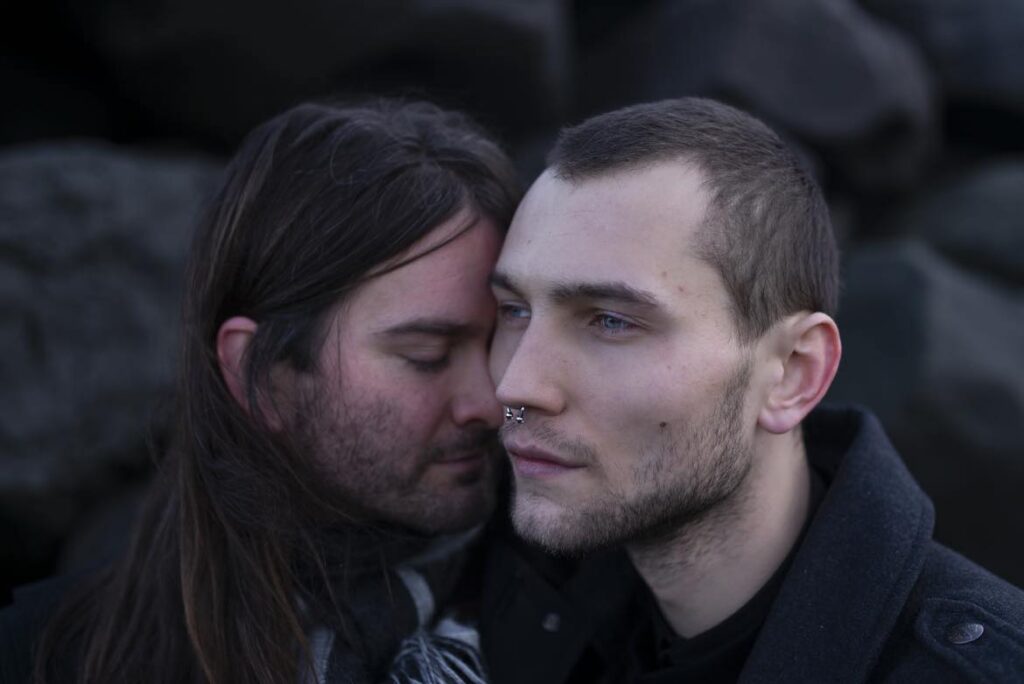
Being Myself for the First Time
What surprised me the most was that nobody really cares if you’re queer or not. It’s not an issue. It’s not new or strange. Queer people are visible and it doesn’t cause a sensation or controversy. That was a big relief for me when I moved here in 2017. I will never forget the feeling when I was walking down Laugavegur holding hands with a guy I was dating that time. Even though I knew I’m safe here, my heart was beating fast. It was because of the recollection of my experiences in Poland when random people on the street were calling me names or poking me just because I was different than them. But here nobody even looked at us. Two people holding hands … not a big deal.
I moved to Iceland and I didn´t know a single person here. The natural way for me to meet new people was through Grindr of course. Friendships I made there continue to this day. Pixy was the first drag queen I met in my life. She invited me to the drag queen show that was held in Gaukurinn. That experience opened a whole new world to me. I met all kinds of queers and started to feel the part of community. Very soon I became a background dancer and performed with the Queens in various shows in Gaukurinn.
I remember walking to the event I saw a straight family with kids holding rainbow flags. Then I realized that pride parade is here for everybody. It’s straight friendly. It’s a family celebration. It’s absolutely inclusive!
Another positive shock I experienced during Hinsegin dagar in August 2017. Noteworthy, that was my first gay parade I ever attended. I remember walking to the event I saw a straight family with kids holding rainbow flags. Then I realized that pride parade is here for everybody. It’s straight friendly. It’s a family celebration. It’s absolutely inclusive!
The feeling of freedom and safety I experience here is priceless. I love it and ‘m grateful for it.
Jacob Volsky

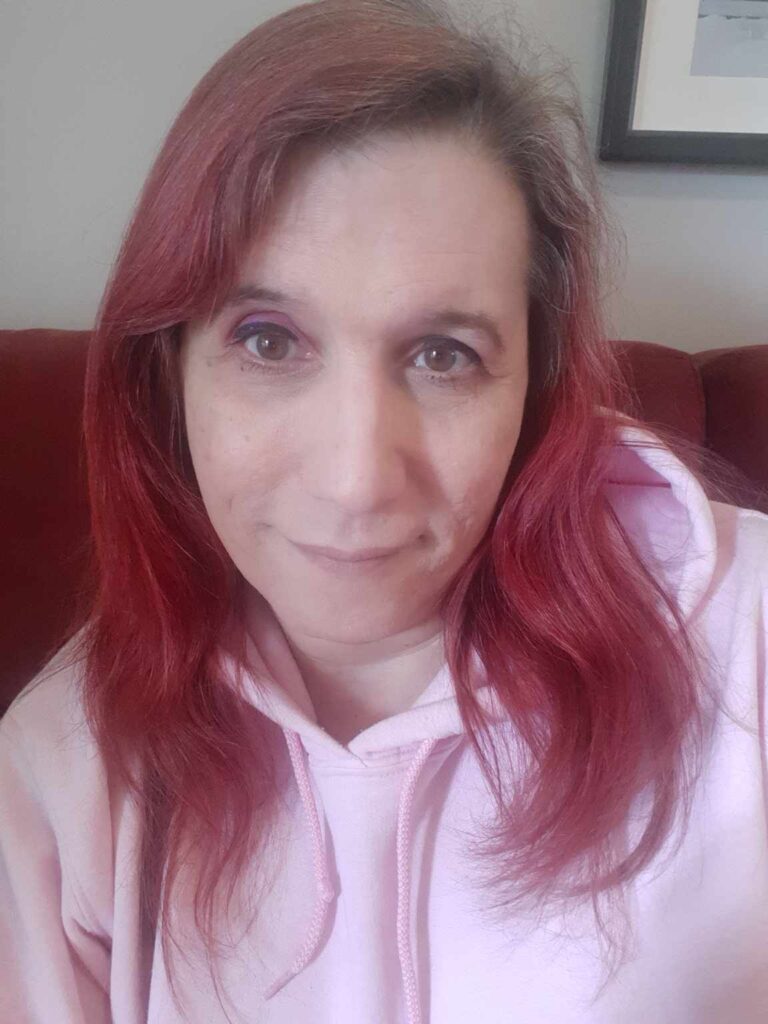
Intersections and Solidarity
This is a weird subject for me to get into mostly because I come from one of the most privileged groups of immigrants you could belong to. I’m white, North American, a native English speaker and can speak Icelandic.
That said, I have for sure had my challenges and run-ins with bigotry as both a foreigner and a trans woman, but also a great deal of joy from both of these sometimes overlapping communities.
I had realised my gender and sexuality from a very young age, like probably still in the single digits, but kept both repressed for years. Coming out as bisexual when I was 19 was difficult, in no small part because the AIDS epidemic was raging in the US but there was an inverse proportion of information to bigotry. So much so that I stayed in firm denial of my gender identity; being openly bi was difficult enough.
Soon, the denial became automatic, and could run without my thinking about it. Being bisexual and foreign was an alienating experience, as–surprise!–even queer people can be xenophobic. I find myself feeling like I was on the outside looking in; grudgingly accepted as “part of the community” but not really embraced.
That changed in the 2000-teens, however, as more trans people began to step out publicly, and the walls of my denial began to falter. And then they fell apart altogether in 2018.
I don’t know if it’s because trans people also feel like outsiders in the greater queer community, but I have felt far more accepted by trans Icelanders than by other Icelanders in general. My foreignness has literally never been so much as a topic of conversation, never the subject of the many tedious questions folks love to ask foreigners (“where are you from? How long have you lived here? How did you learn Icelandic? Do you have an Icelandic partner?”).
I am often left wondering if my foreignness has encouraged an extra degree of viciousness in their transphobia, or if my transness encouraged greater xenophobia.
Which is interesting, as I think about it, considering how few other foreigners I meet within our trans community. Like I said, it could be due to trans people also feeling like strangers in their own towns.
When dealing with cis-het Icelanders, it’s a different story. Most of the time things go well. But when I encounter prejudice, I am often left wondering if my foreignness has encouraged an extra degree of viciousness in their transphobia, or if my transness encouraged greater xenophobia. It’s hard to gauge and doesn’t particularly matter; hate is hate regardless.
Most people know enough to conceal their bigotry with other rationalisations; to smile in your face as they stab you in the back. Fortunately, my trans siblings are always there for me.
Andie Sophia Fontaine

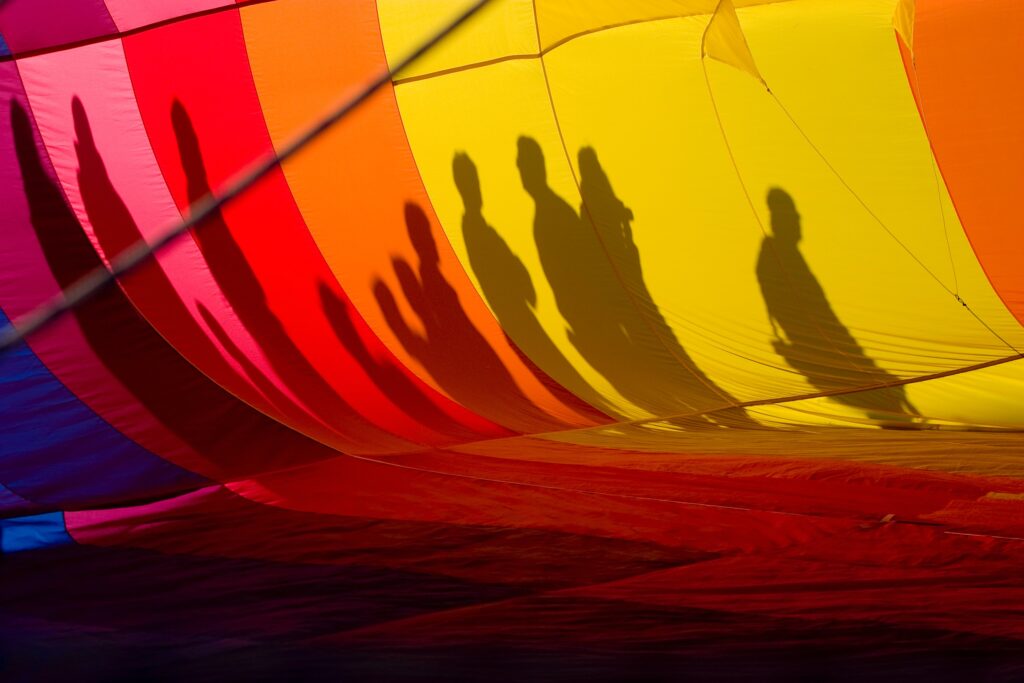
Through the Queer Lens
When I have access to my queer world view, I break down binaries. I recognise nuance. I invite openness rather than simplify into “this or that.” The world through my queer lens has a lot of “and.” When I look at the world through queer glasses, I am curious about identity, sex, gender, and even the word ‘queer.’ I question whether queerness exists in Iceland.
When I was asked to write this story, one of the conversations went like this: “So, it is open to however I want to talk about my experience of queerness in Iceland?” “Yes, basica ly.” “So, eroticas is fine. Lol.” “Heheheh. Eeeeh well maybe keep in mind that this will be hung up on a wall at the pride centre.” “Don’t tempt me. Lol. Okay, okay… I will keep it family friendly.” “Thank you.”
This was, of course, a lovely and witty conversation with two awesome humans. However, it illuminates one example of queerness in Iceland. Queerness needs to be family friendly. Queerness needs to be approved by the greater community. Queerness needs to be vanilla, monogmous, and married with two children.
Queerness, by the ever-evolving definition, means something like: different, strange, weird, new, never-been-done before, thinking outside the box. If we continue to look at our personal queerness through the lens of heteronormativity, then does queerness even exist in Iceland? I know, I know it is more complex than that. Nuance abounds.
I question whether queerness exists in Iceland.
Iceland is queerer than you think. The polyamorous community and swinging community and BDSM, darkroom dwellers, and the “fuck gender” pioneers are all here. It is my hope that they can live out loud and live their experience looking through their queer glasses… and that Pride becomes an intentional practice of being yourself, regardless of others’ opinion.
Do I feel safe in Iceland? Yes. Does queerness exist in Iceland? Sure. Is Iceland looking at queerness through the heterosexual cisgender lens? In my experience, yes.
Anonymous

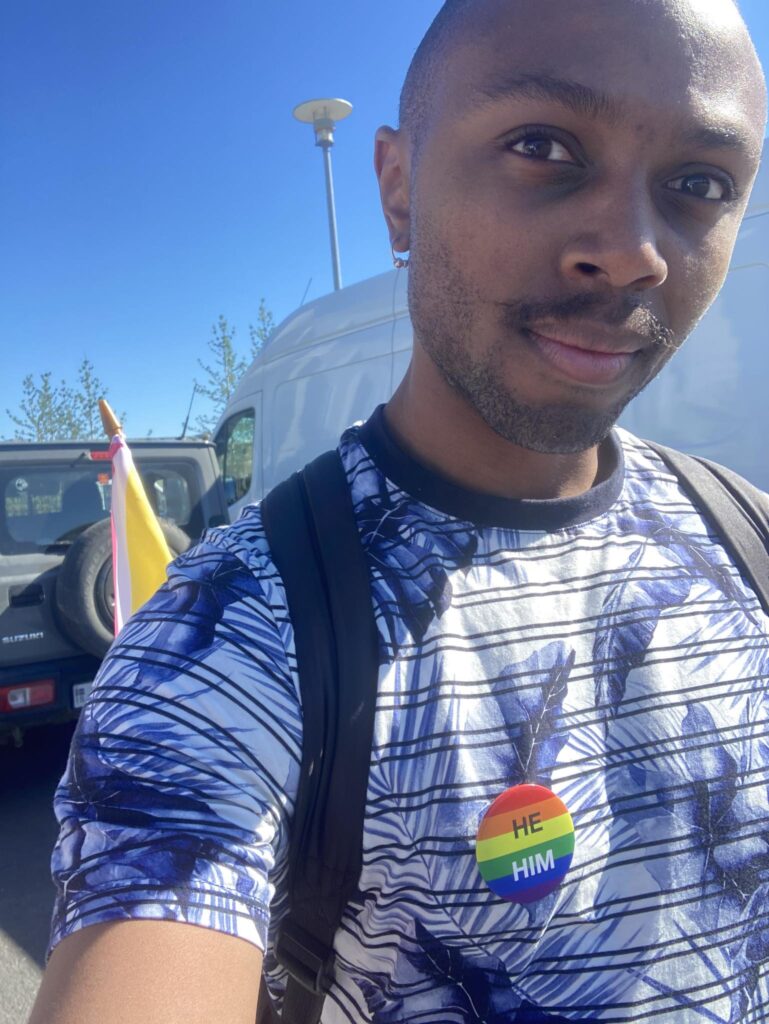
Dyggðaskreyting
Hvernig er að vera hinsegin manneskja af erlendum uppruna á Íslandi? Ég fæ alltaf þessa spurningu þegar Hinsegin Dagar eru að nálgast, en annars er hinsegin systkinum mínum skítsama um það. Ekki eins og ég þarf að ræða þetta dagsdaglega, en þessir pistlar og viðtöl gera lítið annað en að gera mig að tóken sem hinsegin samfélagið hér á landi tínir út úr sínum kista árlega einvörðungu í þeim tilgangi að geta sagt hvað það er ekki rasískt. Síðastliðin ár hef ég tekið þátt í greinarskrifum á vegum Hinsegin Daga til þess að ræða þetta mál og einungis þetta mál, eitt skipti að undanskildu. Þó að ég hafi verið duglegur að tjá mig um þetta málefni ásamt öðrum gerist ekki neitt í kjölfarið. Eitt sem ég hef oft nefnt í þessari umræðu er blætisgerving litaðra hinsegin fólks, einkum úr mínu sjónarhorni sem svartur karlmaður þar sem ég hef oft orðið fyrir áhrifum “BBC” (big black cock) staðalímynda, en þessi tókenismi og blætisgerving minnar reynslusögu er varla betur en þeir fáfróðu menn sem hafa sent mér skilaboð í leit að einhverjum þeldökkum gangsta sem getur ráðið yfir þá. Klárlega er þetta mér hjartans mál, annars hefði ég ekki tekið þátt í þessu nokkur ár í röð, en hvað er raunverulega verið að gera til þess að skapa opnara samfélag fyrir alla liti regnbogans?
Til að svara spurningunni tel ég að mín upplifun sem hinsegin manneskja af erlendum uppruna á þessu landi hafi verið einangrandi. Sumt fólk þykjast skipta sig um þetta bara til þess að geta montað sig um hvað er það framsækið, en reynist svo vera óeinlægt. Aftur á móti eru líka einstaklingar sem gæti ekki verið meira sama um þetta til að byrja með þar sem það er sátt um leið og það hefur fengið allt sem það vill á diskinn, óháð hversu mörg eru ennþá að bíða til þess að komast inn á veitingastaðinn yfir höfuð. Þetta gerir það að verkum að mér líður eins og ég sit á afskekktri eyju í miðju afskekktrar eyju.
Hvernig er að vera hinsegin manneskja af erlendum uppruna á Íslandi? Ég fæ alltaf þessa spurningu þegar Hinsegin Dagar eru að nálgast, en annars er hinsegin systkinum mínum skítsama um það.
Mörg sem tilheyra hinseginleikinn, hvort sem þau kalla sig “hinsegin”, “LGBTQ+”, “hommi”, “trans”, o.s.frv. hafa einmitt höfðað gagnrýni gegn fyrirtækjum og öðrum stofnunum vegna sýndarmennskunnar sinnar. Víðast hvar finnast jörm (e. memes) sem varpa ljósi á hvernig heimurinn hættir að skipta sig um mannréttindabaráttu hinsegin fólks strax og klukkan slær miðnætti á 1. júlí. Þó að samhengið sé öðruvísi á þetta líka við hér, enda er þessi umræða ósýnileg á öðrum tímum árs.
Ég tala nú ekki fyrir hönd annarra einstaklinga, en mælirinn minn hefur fyllst. Hvað er þetta nema dyggðarskreyting þegar ekki mætti benda til eins úrræðis sem stendur okkur til boða? Hvar og hvenær eru þessar umræður að eiga sér stað utan Hinsegin Daga?
Derek Terell Allen
GayIceland would like to thank the members of the queer community for sharing their stories with us, originally written for Reykjavik Pride, where they were on display at the Pride Center.

